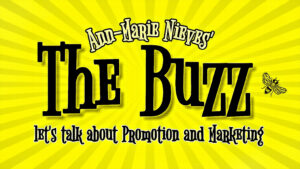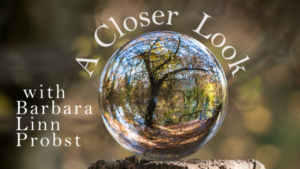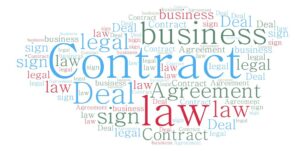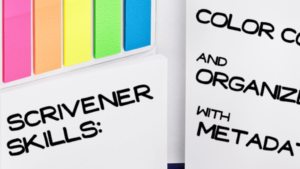business
Kathleen Troy and Dylan
I’m very excited to present today’s Author Up Close featured writer to the WU community. I met Kathleen Troy through her publicist and have been delighted to follow her journey to publication. Kathleen is an author, movie producer, and a writing and law professor at Cypress College, but her passion is dog training. She has combined her love of writing with her love of dogs in her Middle Grade mystery series Dylan’s Dog Squad. Three books in, Kathleen’s learned a lot about the industry, including why it’s important for authors to understand the difference between publishing their work and finding distribution for it. In this Q&A, Kathleen shares lots of valuable insight, and one of the most important lessons she says she’s learned along the way: find good people who can help you achieve your goals.
GW: Thanks for agreeing to share your writing and publishing experiences with the Writer Unboxed community. I like to start by asking writers about their author origin story; it’s kind of like a superhero origin story but with a pen. What’s yours?
KT: Writing has always been a part of my life. When I was growing up, if I had a bad day at school, I just came home and wrote myself a better one. No denial there. In undergrad, I minored in journalism. My father always liked to read my stories. When he was diagnosed with cancer at forty-seven, we were told from the onset it was fatal. So when he was in the hospital, I started writing a murder mystery novel for adults. When I visited with him, I would read him a new chapter. Sadly, he died before I finished the book, and I put it away.
One night I was at a very bad play, and I told my friend that my book was better than the play. He said, “Everyone always says that.” I insisted my book really was better and decided to finish writing it. I got an agent on my first try and an offer on my first submission. I was excited until I learned the offer was to sell the novel outright. It would no longer be mine. I really, really wanted to be published but I turned down the offer. I’d written the book for my father, and I realized that I didn’t want to sell a memory.
GW: You write Middle Grade fiction, and specifically, you’ve written a series about a group of friends and their dog, Dylan, solving mysteries together. How did the idea for the series come about?
KT: The Dylan’s Dog Squad Series is largely based upon Dylan, an American Cocker Spaniel, and his true-life experiences, adventures, and training.
In the series, Casey’s brother Aiden, an American professor living in South Korea, bought Dylan but got frustrated with the dog and sent him to Casey, his twelve-year-old brother in California. Casey is thrilled to have a dog, his mother less so. Casey and Dylan have thirty days: Casey to learn the responsibilities of dog ownership and Dylan to learn to be a good dog—or else. They form an inseparable bond, are never apart, and, in each book, they continue to grow as a unit.
The idea for the […]
Read More“Everyone has to start somewhere.”
It’s a familiar truism. And like most truisms, it states a fact so self-evident that there’s no need to really think about it. There’s no start without a starting point, right?
Too often, however, it’s used to dismiss or excuse a lack of skill or training or experience or some other important qualification for doing something that requires expertise.
Because “starting” doesn’t necessarily mean starting from zero. If you start your own law practice, you’ve presumably gone to law school and passed the bar. If you start your own contracting firm, you’ve hopefully apprenticed and/or worked with other builders. If you start your own real estate agency, you’ve taken courses and obtained a license.
Non-zero starting points are just as important for new literary agents and publishers. This may seem obvious—but it’s a fact that writers too often ignore.
THE IMPORTANCE OF EXPERIENCE
Working as a literary agent, or running a publisher, is not an entry-level job. These are complicated, challenging professions that demand specialized knowledge and expertise—not just because skill is needed for success, but because the publishing industry is weird and opaque and clubby and really, really difficult to figure out from outside.
An agent needs—at a minimum–to have contacts at publishing houses and an understanding of publishing contract terms, as well as a nose for marketable manuscripts (not as easy as it sounds). A publisher must—also at a minimum—understand editing and marketing, know how books are acquired and distributed, be capable of creating a fair contract, be able to hire qualified staff–and, just as important, have a business plan.
Such skills don’t come out of the blue. They’re best acquired through training at a reputable agency, or working in publishing in some capacity. Because there are no licensing or educational requirements for literary agents, however, and the easy availability of digital publishing technology makes starting a publisher as simple as setting up an Ingram Spark account, anyone can become an agent or a publisher…even if they have absolutely no qualifications for doing so.
Inexperienced agents and publishers often have unrealistic ideas about what it takes to succeed. They may believe that a love of books and writing is enough to bridge the knowledge gap, or that the scars of a previous bad publishing experience will empower them to do better. They may imagine that publishing is a fun side hustle they can do in their spare time, or that a career in corporate sales gives them skills transferable to agenting. They may not realize the importance of a business plan, and assume it’s okay to skip the prep work—to just jump in and learn as they go.
That’s not to say they don’t have the best intentions. Frequently, they do. But without professional skills and experience, they are at a significant disadvantage, and face a high risk of failure in an extremely competitive industry that’s precarious even for people with substantial credentials.
THE PRICE OF INEXPERIENCE
Brand-new agents and publishers still building their lists offer the possibility of access, in an industry where access is highly restricted and competitive. Along with hope, dreams, and the frustrations of the query process, it’s one of the main reasons why so many writers are willing to give unqualified people a pass.
Failure isn’t the only thing you’re risking […]
Read MoreImage – Getty iStockphoto: Phonlamai Photo
Scaring Up Some Audiobooks
Recently, a distributor of digital books – both ebooks and audiobooks – announced that it was adding a new offering for publishers: “AI voicing” for audiobooks. The company could barely clear the word audiobooks before rushing to assure everyone that “AI narration” would never match the primacy of audio work using human readers and production. The caveat, going on and on, came across almost as an apology before any offense had been committed.
True, a certain resistance to the idea of machine-generated audiobooks is hardly eased by such headlines as Synthetic Voices Want To Take Over Audiobooks (Wired, January 27). No, they don’t. Synthetic voices don’t want to take over audiobooks. They don’t want anything. They’re synthetic. But book publishing is an industry that’s never accepted digital developments easily. Even after e-commerce and digital products played a key role in the US market’s comparative success during the still ongoing pandemic, those “synthetic voices” seem to murmur something sinister.
The many vendors now offering machine-generated audio narration know that this is the pushback to expect. It’s a mindfield of emotional reaction. They’re nervous about it.
Some defensiveness isn’t without reason. The business of gifted human narrators – who are actually readers, voice actors, interpreters, not narrators, the term has never been quite right – are supported by many additional workers in important roles. Those workers include sound technicians, audio editors, studio and tracking-booth providers, producers, in some cases directors, and more folks. Jobs are involved, and they comprise a lot of talent and many skill sets. Programs like the Audio Publishers Association support these workers, and the APA’s Audie Awards rightly honor their work in 25 categories.
Nevertheless, there are compelling reasons for publishers to listen to machine-generated audiobook readings. The kind of work they can handle is unlikely ever to be produced in human readings because of the cost factor.
As many publishing professionals readily agree, machine-produced voicings may be best for nonfiction, which is generally thought not to need the emotional and aesthetic nuance of fiction. But of course, in a great many cases, nonfiction is read by the human author, who may be untrained and inexperienced at the microphone. While there’s always someone asserting that those “synthetic voices” feature many mistakes in pronunciation, so does the work of many human authors.
Just days ago, I heard a very fine, prominent nonfiction author in his reading of his own book pronounce scathing with a short a, making that first syllable rhyme with cat. Most of us have had the experience of discovering, red-faced, that we’ve been pronouncing something wrongly for years. The audio edition of one of last year’s most important American political books was at times almost comical in its mispronunciations by its much-praised author. In both machine-generated and human-produced readings, proof-listening is critical to catch these things.
Still, the imperative for publishers regarding audio actually goes beyond nonfiction.
Read MoreSerial reading/writing platforms and apps aren’t new. Wattpad is probably the best known; others include Radish, Webnovel, and Kindle Vella.
In the past couple of years, though, there’s been major proliferation in the serial reading/writing space, with multiple companies launching mobile apps: Goodnovel, NovelCat, SofaNovel, FameInk, Hinovel, NovelPotato, Novelstar, Fizzo, just to name a few.
Based primarily in Singapore, Hong Kong, and mainland China, these apps host enormous numbers of mostly English-language serialized novels in almost every genre you’ve heard of (and some you haven’t). Novels are published chapter by chapter, with the first few available for free and readers buying “coins” or tokens to unlock the rest.
What’s the appeal for writers? Monetization. Benefits include a share of reader-generated revenue, along with a variety of one-time or repeating cash payments (for instance, Novelbee offers a signing bonus, an updating bonus, a completion bonus, a renewal bonus, and an advance/buyout payment). And it’s not just about the money. The apps also hold out the promise of exposure, reader feedback, promotional support, and guidance from editors. “We Nourish New Shining Stars,” Hinovel promises.
Despite publishing almost entirely in English (and featuring mostly white European faces on book covers), the apps recruit internationally. Novelcat, for example, describes its Writer Benefits in Bahasa Indonesia, Vietnamese, Hindi, Tagalog, Portuguese, French, German, and Spanish in addition to English. Editors, aka recruiters, who look to sign completed and previously published books as well as works yet to be written, employ aggressive tactics, including soliciting writers on Wattpad, messaging them on Facebook, inviting submissions in writers’ groups, and emailing out of the blue. If you’ve self-published, or published with a small press, you may hear—or may already have heard—from a serial reading/writing app.
So why do the apps loom large on Writer Beware’s radar?
UNPACKING THE PROMISES
What’s not always completely clear in recruitment ads and emails, or on the apps’ websites, is how conditional many of the “writer benefits” are.
The full range of financial rewards, for instance, may only be available for exclusive contracts, with many of the income options off the table for non-exclusive agreements. Benefits may be further restricted by limited availability (you may only be able to claim monthly update bonuses twice, for example) or by requiring grueling benchmarks in order to claim them (producing 60,000 words or more monthly, being “absent” no more than two days per month). As for a share of reader income, that may only be available for books that are designated as “premium content”—something that’s entirely at the apps’ discretion, and is not necessarily guaranteed.
Many apps promise editorial guidance–but the people functioning as editors are recruited in the same way as authors, and remuneration isn’t exactly princely. iStory, for example, provides editors with a small monthly cash payment plus a 10% share of reader revenue from the authors they sign, but they get paid only if they fulfill recruitment quotas. I can’t see a lot of credentialed professionals signing on for that. (I’ve gotten reports from a number of writers who’ve had poor editorial experiences, including being berated for for not posting enough content, being pressured to insert erotic content into their […]
Read More
One of the things that has struck me most forcibly throughout my career as a writer and, later, as publishing director of a small press as well, is how important good book design is. Humans are visual creatures and an unappealing, amateurish or confused design will turn us off immediately, even if we cannot explain why. A design that might be technically accomplished but too much ‘in your face’, overshadowing the content, is not right either. Great design is both invisible and yet very much present, working its stylish magic in the way that’s most appropriate to the book contents. Great design is crucially important of course for all kinds of illustrated and photographic books; but it’s also important for books that are centered on text, such as novels and narrative non-fiction. And that holds across the board, whether you are traditionally or self-published. It’s really worthwhile looking at award-winning book design, such as, in Australia, winners of the annual Australian Book Design Awards. Bad design conversely can be highlighted publicly, such as this ‘walk of shame’ list of badly-designed covers of classic novels.
Behind the magic is all sorts of hard work. In all books, design isn’t just about covers: it’s also about the internals. It’s not just about placement of text and images in an illustrated book; but also about how the pages of text-based books look. The type and size of font used, the spacing, margins, how title pages and other such ‘extra’ pages are presented, the placing of chapter headings, and much more to do with the layout generally: there’s a lot involved, which readers and even authors may not be specifically aware of but which publishers and designers work on together, closely. For the internals, font size and type are of course readily understandable in terms of design attractiveness and clarity but other more technical issues include putting text too close to the margins or too close to the bottom, where a reader’s hands might cover it, or the quaintly-named ‘widows and orphans’ problem of line-chopping, which can occur in typesetting and carry over into design headaches! For the cover, meanwhile, it’s vitally important that text and image work harmoniously together, that the cover image reflects the content and that the text be clear and stand out without overwhelming the image. There are also other aspects of the cover which have to be kept in mind, as designer Beattie Alvarez reminds readers in the recent book Inside Story: it’s not just about the front cover, but also the back cover, and the spine. All has to be designed so that it forms a harmonious whole.
With novels and other long text-based books, authors will be consulted by publishers on the general cover design but not usually on the internal design. However you can, of course, comment on it when you get to see it, and in that case it’s useful to be at least a bit familiar with how design works. If you are self-published of course you will have a lot more say—you will in fact need to work closely with the designer to decide on the full look of […]
Read MoreYou may know me as Greer Macallister, bestselling author of historical fiction, but lately, I’ve taken on another identity. I have a new book out (you may have heard of it) and as the author of Scorpica, my identity has shifted in two key respects: my name on the book jacket is G.R. Macallister, and it’s not historical fiction, but epic fantasy.
All in all, the genre shift has been a pleasure. I wrote something ambitious, complex, and satisfying, proving to myself I was capable of something entirely new. As to the less-pleasant aspects, I went in with my eyes open. I knew that putting out a new book in a new genre, different from the one in which I’ve established myself, would require flexibility and patience. Of course that’s what’s needed as an author in general, but the genre switch put extra pressure on both of those character traits, to say the least.
Do I regret changing genres after four books (while reserving the right to switch back at any time)? Not at all. But do I have advice for those thinking about making the switch? You bet.
If you’re an author with an established readership in one genre looking to publish in another, here are three things to watch out for:
Don’t underestimate the time that it takes. Maybe if you’re shifting between subgenres this might not be an issue, but in my case, making the move from writing historical fiction to writing epic fantasy wasn’t just about writing a different book. It was about learning to write a different kind of book, almost from the ground up. Reading up on current fantasy was a fun task to assign myself, but it was a task nonetheless — hours and hours of reading, to fit in among all the other reading I do for work and for fun. So that’s a bunch of time up front. Plus there’s…
You might need to shake up your team, which takes even more time. The agent who has sold all of my historical novels is fabulous and wonderful, but she doesn’t represent epic fantasy, and the publisher who published those books doesn’t really do adult fantasy either. Which meant it wasn’t just the writing itself that was different, but every other aspect of managing and selling this new book. My incredibly kind agent gave me the go-ahead to connect with a separate agent just for my fantasy work, and my agreements with both were written to accommodate the other, and it’s been a dream so far. But making that dream happen through querying and negotiation took an extra half-year on top of the writing work, and without extraordinary luck it could have been much worse. Other friends shifting genres have had to leave old agents and find new ones, or strike out on their own with self-publishing ventures, and both of those are even more time-consuming. And on top of that…
Readers may not follow you — and they’re not the only ones. I was certain that some of my readers who enjoyed historical fiction focused on strong women would also enjoy epic historical fantasy focused on strong women, and they were. But I was equally sure that plenty of my historical fiction-loving readers would […]
Read MoreWe are thrilled to introduce you to WU’s newest contributor today, author Yasmin Angoe! Yasmin’s debut novel, HER NAME IS KNIGHT, is a powerhouse novel about a woman stolen as a child from a village in Ghana, who goes on to become an elite assassin determined to avenge her family and put an end to a human trafficking ring. Sound fantastic? It is! It received a starred review from Library Journal, became an Amazon ‘best book of the month,’ and earned Yasmin the Sisters in Crime Eleanor Taylor Bland Award for Emerging Writers of Color.
It also came with some pressures, and that’s what Yasmin is going to talk with us about today–how she handled all of that in order to write another day.
Yasmin, who is a former English teacher (middle and high school), is also a developmental editor and sensitivity reader, and a member of SinC, Crime Writers of Color, Southeast Mystery Writers of America, and International Thriller Writers.
Learn more about Yasmin on her website, and follow her on Twitter.
When I started on this journey back in the fall of 2021, and my agent told me I got a two-book deal, I had so many expectations about what my author life would be like. All the glitz and the glamour. Seeing my book out there in the world. Signings. The honor and prestige. However, once my toes touched back on solid ground, I was faced with real life. Working full-time along with my freelance editing. Author stuff. Juggling married life and family. Remembering self-care. And I realized that trying to keep all those plates in the air was A LOT! Before I got my deal, I didn’t think about what things would be like when book one was done, and I would have to do it all over again—this thing called writing a book. And as my deadline neared and sheer panic began to settle deep within my bones, I realized I couldn’t do it all. Something would have to give. I needed Help!
It took all this time for me to come to some understandings with myself and some learnings that have helped me manage my expectations and deal with the complexities of life—both personal and author life. I’m sharing with you a snippet of what I’ve learned (am still learning) about being a debut author.
Read More
Please join us in welcoming Victoria Strauss to Writer Unboxed as a new regular contributor. Victoria is not only a multi-published novelist and author of short stories, she is the voice of Writer Beware–a group dedicated to empowering writers by unmasking writing scams and schemes. We’ve been fans of Writer Beware and Victoria Strauss for as long as we’ve existed here as a site, and we could not be happier to have her as a member of the WU team. Welcome, Victoria!
When I do presentations and Q&As, I’m often asked to name the most common scheme or scam writers need to watch out for.
Usually, I have to think a moment before I answer—not just because the universe of writer-focused predation is constantly evolving (for instance, there are far fewer fee-charging literary agents now than there were when Writer Beware was founded), but because the ways in which writers can be tricked and exploited are so many and various that it’s hard to choose.
These days, though, I can respond without hesitation. By far the most prevalent writer-focused scams are solicitation scams.
Solicitation scammers contact writers out of the blue with publishing-related offers that seem too good to be true. A literary agency is interested in your work! A prestigious publisher wants to acquire your book! A film producer wants to turn your novel into a movie! A marketing company can expose you to millions of potential fans!
You know the old adage, though: if it sounds too good to be true, it probably is. In reality, these offers are not about boosting your career or raising your profile. Whatever enticing carrot a solicitation scammer may dangle before you, the real aim is to get your money.
Solicitation scams and schemes are not new. Back in the days of snail mail, costly print vanity publisher Dorrance Publishing was notorious for soliciting submissions from copyright registration and magazine subscription lists. (Dorrance has re-tooled itself for the digital age, so its solicitations now come via email.)
Profiteering contest and awards programs have also long been prolific solicitors (for instance, J.M. Northern Media, which runs multiple high-entry-fee “festivals”), as have bogus Who’s Who registries. Predatory author mill Omniscriptum regularly solicits submissions to its many imprints, and if you write nonfiction, you may have been contacted by Close-up TV News, a pay-to-play “news” program that has been chasing customers for nearly two decades.
Over the past three years, though, the volume of solicitations has exploded, driven by a huge rise in publishing-related scams from overseas, and also by the pandemic, as in-person networking and marketing opportunities for writers have dwindled and online activity has increased. Self-published and small press authors are the solicitors’ favorite marks. But any writer can be a target.
WHAT YOU MAY ENCOUNTER
Fake Literary Agents and Agencies
Real, reputable literary agents—whose inboxes are overflowing with submissions and who have no need to solicit clients–rarely reach out directly to writers they don’t already represent. For scammers, on the other hand, cold-call solicitation is their main recruitment method. And large numbers of them are posing as literary agents and agencies.
Fake agency solicitations typically involve strategically […]
Read MoreHave you ever wanted to track the writing/revision status for each scene in your manuscript? Or maybe you’d like a quick way to read through only the chapters belonging to your secondary storyline, or written in your villain’s POV.
Sometimes you can fit everything you need in the scene or chapter document title (e.g., Wedding-Julie, 5pm, Tue 2/22, Boston), but this can quickly get cumbersome, and may provide mixed search results if you have typos or inconsistent abbreviations.
For better results, you can instead tag a document with a piece of metadata. Metadata is information about an object, in our case, a document in the Binder in Scrivener.
In addition to POV and storyline, here are a few other things you might want to track:
Scrivener has several types of metadata you can use to color code, organize, group, and search for your documents. They include Label, Status, Keywords, and Custom Metadata. I’ll discuss how Label, Status, and Keywords differ and then cover how to use each.
Labeling Your Files
The Label field is my favorite in Scrivener because it has the most visibility. (Yes, I’m the kind of dork who has a favorite type of metadata.) Labels have colors associated with them, which can be turned on in the Icons, Binder, Corkboard, and Outliner. Label values can also be viewed as a column in the Outliner, or from any tab in the Inspector.
How I use it: During my fiction drafting phase, I like to use labels to track point of view (since I always have more than one POV character in my novels).
I sometimes switch it to track revision status during edits. Knowing a file’s stage of revision helps me quickly see where I need to start working when I open my project, and serves as a visual progress meter.
For blog posts, I use labels to denote which website the post was written for.
Pros:
+ Color can be turned on in multiple locations, very visible.
+ Label values are chosen from a list, thus reducing errors from typos (helps with searches).
+ The Label title can be changed to match whatever you’re tracking (e.g., POV, Status, Theme, Site) and the new title will appear in menus.
Cons:
– Only one value is allowed per document.
Understanding the Status Field
Despite its name, the Status field can be used to track anything you want. Status is basically the Label field without any color, which makes it less visible. I’d use this one for something you want to track, and maybe search for, but don’t need to see as easily.
The Status value can be viewed as a watermark on the Corkboard, a column in the Outliner, or from any tab in the Inspector.
How I use it: Sometimes I use this for revision status as intended (though I change the list of values to match my own preferences), but usually I use it to note the scene’s setting. Or I don’t use it at all. (Gasp!)
Pros:
+ Status values are chosen from a list, thus reducing errors from typos.
+ The Status title can be renamed to match whatever you’re tracking (e.g., POV, Status, Stage, Site) and the […]
Read MorePlease welcome author and community member Tom Pope back to WU today! Tom was a singer/songerwriter in Hollywood for twenty years before turning to novels. His second novel The Trouble with Wisdom is a cross-genre tale, being compared to a union of McCarthy’s The Road and Mattiessen’s The Snow Leopard, a dystopian story that gives rise to hope. It launches this Tuesday, 2/22/22. A prolific guy, Tom has four more novels in the pipe line.
We’re thrilled that he’s here today to bring us a provocation about hope, fear, and creation.
Learn more about Tom and his novels on his website, and by following him on Facebook and Twitter.
Joan Didion’s passing reminded me that after no one pronounced my first book brilliant, trendsetting, and sure to meet with fabled destiny, I realized I was slouching toward Neverland and quit writing for good.
It may surprise you that the next books I wrote in spite of my commitment to join the circus to avoid writing also sucked. My secret is: angst and self-contempt make for wonderful inspiration to get to the writing nook, so in my spare time I hone them to a sharp edge. In addition, ruinous doubt has proved to be a powerful enhancement for doing my best work. . .
. . . Said no author ever.
The Place of Dopamine
According to endocrinology and other scientific disciplines I can’t pronounce, success—such as landing a publishing deal—triggers dopamine response, which fuels happiness. But before you run too far with that, consider that eating food, sleeping well, and taking a bath produce the same result.
In the interest of personal and community care, as authors, let’s lay the cards on the table. 1) Writing involves nearly endless intricacies of the highest form of human cognition along with the mastery of many particular skills. Only the initial aspects of these capacities can be taught. Sharpening them is up to us. 2) The fabrication is time consuming. 3) Underlying each stage of writing lies a barely understood ability of mind—the creative process. Let’s take a moment to acknowledge the challenging landscape we work in.
The publishing industry, on the other hand, is not particularly interested in these things, including our dopamine response. So why would we—except under threat of death—surrender our symbiotic relationship with it in favor of taking a fused subordinate position if doing so weakens our passion to write, the quality of the work, and most importantly our ability to live happy and fulfilling lives . . . which can enhance our writing?
Earth, Sky, and Sales
Regarding creativity, consider each of us is bound by the parameters of the soil from which our creative process springs; things like our culture, country and history, our education and dwelling situation, and our health, backstory and gender. These conditions shape the stories which arise in the blue sky of our creativity. We cannot create what we cannot conceive.
What universal law, though, says that what we conceive will lie neatly on today’s idiosyncratic commercial path to fame and wealth? AND what axiom states that if our work doesn’t lie neatly there, it is bad? (That some authors solve this problem […]
Read More





















